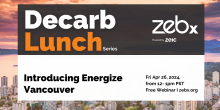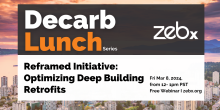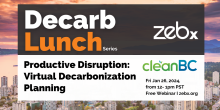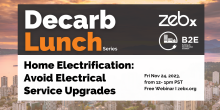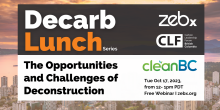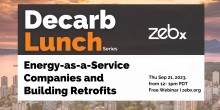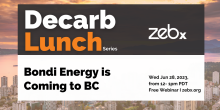Decarb Lunch: Introducing Energize Vancouver
Join leaders from the City of Vancouver’s green and resilient buildings team as they introduce Energize Vancouver—the city's new online hub for information and resources on current and upcoming energy and carbon requirements for existing large commercial and multi-family buildings.


